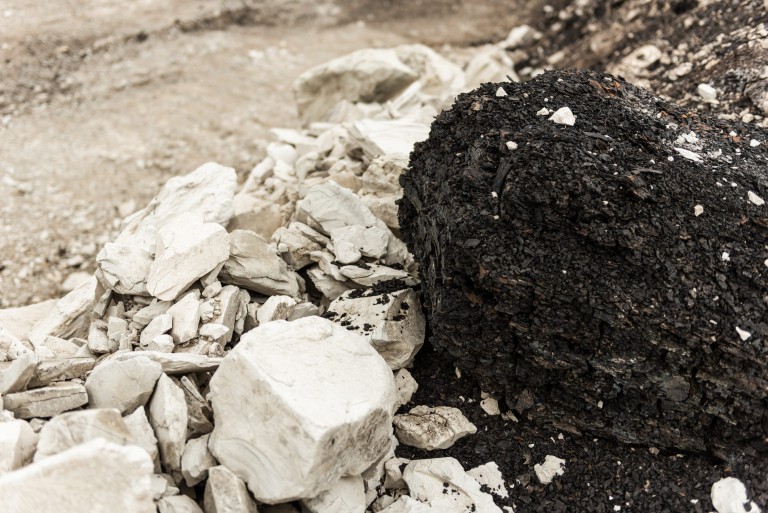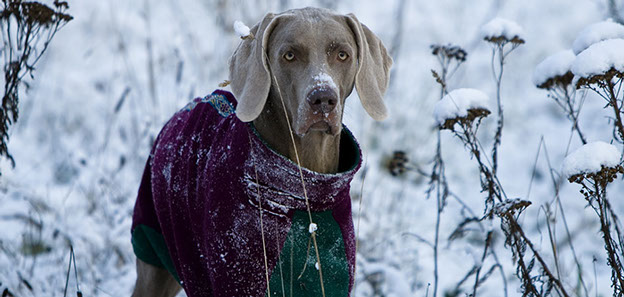During the cold winter months it is important to protect your animals from the dangers caused by the cold.
Freezing temperatures can be just as hazardous to your pets as extreme heat in the summer. If exposed to freezing temperatures, animals are particularly at risk of suffering from frostbite. Their ears, toes and nose are especially vulnerable. Short haired animals are also more susceptible to the cold and a special effort should be made to keep them warm when exposed to cold weather. While it is possible to keep your pets warm with coats and boots, puppies and kittens as well as older dogs and cats and those that are ill should not be outside, no matter how well-dressed. These animals don’t have the fat, metabolism, or the full fur coat they need to stay warm. Rule of thumb is that if it’s too cold for you, it’s probably too cold for your pet.
Cats are particularly at risk during the winter months. They may climb up under wheel wells or under the hoods of cars to stay warm and can be injured or die when the driver pulls away. You can protect your and others’ pets by checking for small animals by banging around the hood and wheel wells of your vehicle before starting it. Also, try giving your vehicle’s horn a quick honk or two in order to warn the animal.
Salt, often used for de-icing, is also a hazard. It can irritate your pet’s paws, drying out their skin, burning the pads of their paws and causing cracked, sore areas. Boots or balms are suggested in order to protect your animals’ paws from exposure to salt. Certain balms can be applied to your animals’ paws that will harden in the cold and then can be wiped off upon returning from outside.
One of the most dangerous hazards to pets is anti-freeze. Anti-freeze is often used with salt as a de-icer and can attract animals due to its sweet smell. It can cause kidney failure and can be deadly. In fact, it doesn’t take the ingestion of much antifreeze to kill an animal. Cats can be poisoned just by walking through antifreeze and then licking their paws. Any animal that you suspect has ingested antifreeze should be immediately taken to a veterinarian for treatment. In order to prevent antifreeze poisoning in animals, be sure that all antifreeze containers are tightly closed and put away on a high shelf and that your car is not leaking antifreeze.
With numerous health hazards threatening animals during the winter months, it is important to take preventative steps in order to ensure their safety.
Additional hazards are presented during the holidays. For a list of these dangers and how to protect your animal check out Pet Care: Holiday Safety Tips
Image by jaeger43


